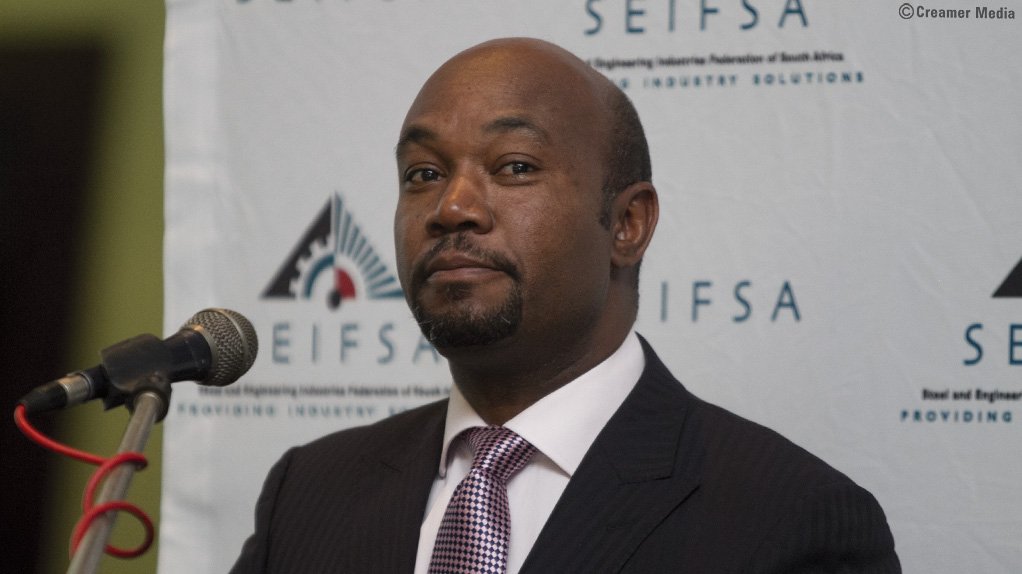Manufacturing, Engineering and Related Services Education and Training Authority (Merseta) CEO Raymond Patel on Thursday challenged government’s National Development Plan (NDP) vision of shifting South Africa’s economy to be more knowledge-based by suggesting the move should rather be to a more manufacturing-based economy, which he viewed as the best way to achieve growth in the country.
“We need to start looking at the manufacturing sector and getting [young] people [interested in following a career] in that sector,” he urged at the Steel and Engineering Industries Federation of South Africa (Seifsa) yearly conference, in Midrand.
He also indicated that South Africa would have to invest more funds in improving its education system if it was to achieve the targeted economic growth rate of 5% by 2030, as set out in the NDP.
Patel put forward that government would have to consider whether its R820-billion infrastructure development plan truly contributed toward achieving economic growth.
“Economic growth requires skilled people. Is government adequately addressing this?” he asked, while referring to President Jacob Zuma’s statement at the launch of the NDP last year, that the country’s massive infrastructure investments should not only lead to new infrastructure, but also to job creation and skills development.
Patel said the rating of South Africa’s mathematics and science education as the second worst in the world, only ahead of Yemen, as listed in the World Economic Forum’s Global Information Technology Report 2013, was problematic given the country’s large economy.
“The South African education system needs to collaborate with internationally accredited institutions such as the Massachusetts Institute of Technology to increase innovation,” he urged.
Patel further indicated that collaboration between the public and private sectors was central to tackling the skills development challenges facing South Africa.
“Collaboration means we need to respond to scarce skills challenges effectively,” he noted, adding that large companies would have to participate in making the National Skills Development Strategy, which is a subsection of the NDP, work properly.
Meanwhile, Black Management Forum president Bonang Mohale, urged South Africa to adopt macroeconomic policies that encourage foreign direct investment, job creation and the development of its small, medium-sized and microenterprise (SMME) sector.
“We need to be deliberate and explicit about what we are going to do. Organised business has the opportunity to collaborate with government, and policies that are SMME-friendly and create more jobs need to be put in place.”
Mohale added that, although South Africa had an abundance of resources, the country lacked the ability to properly manage and optimise these resources to achieve the goals set out in the NDP, which included improving the country’s global competitiveness.
“We need bold visionary leadership to understand that despite the country opening up its markets to the world and entering new markets in 1994, we are still not globally competitive,” he stated.
Business Unity South Africa special policy adviser Raymond Parsons said there was a marked gap between South Africa’s economic performance, which had maintained an average growth rate of 3.2% since 1994, and its potential.
He told delegates that, to ensure the success of the NDP, there would have to be an emphasis on implementation, rather than diagnosis. As prioritised in the NDP, building State capacity to strengthen delivery would have to be realised to a large extent, or other delivery mechanisms would have to be identified, as the country needed a “delivery State”.
Parsons said cognisance would also have to be given to the fact that productivity would underpin economic development.
He highlighted that the NDP required more “champions”, suggesting that business should be one of these.
“The business sector is allocated a definitive role in the NDP and, without its participation, the goals of the NDP cannot be achieved, “ he said, while asking what steps the business sector was taking to enlarge its role as a growth-driver over the next 17 years.
“It is, after all, the private sector that is the 'yeast in the bread' that is to be baked,” Parsons noted.
EMAIL THIS ARTICLE SAVE THIS ARTICLE
To subscribe email subscriptions@creamermedia.co.za or click here
To advertise email advertising@creamermedia.co.za or click here











